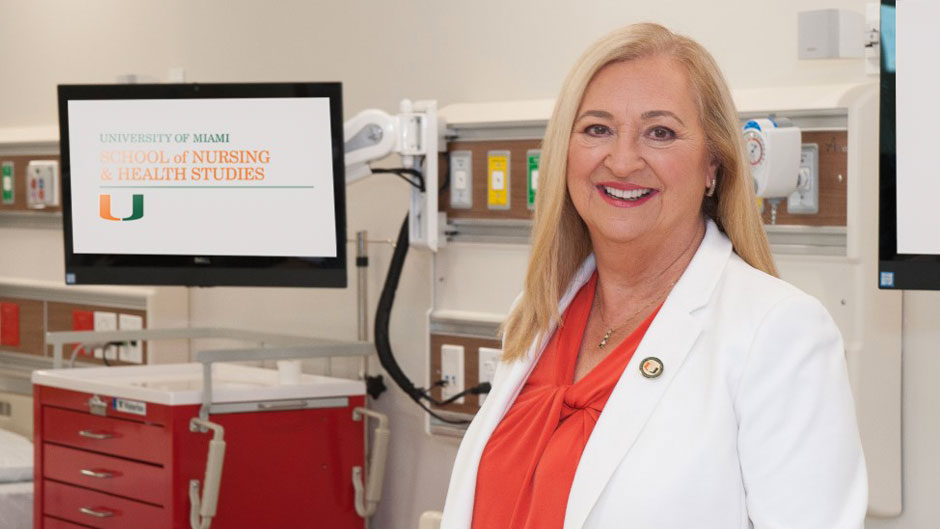As children head back to school this August—which is National Immunization Awareness Month—the dramatic drop in routine vaccinations that began with the pandemic still persists.
Free shots administered to uninsured children for measles, whooping cough, hepatitis, diphtheria, and other preventable and deadly diseases plummeted by nearly 15 million doses since COVID-19 began disrupting all facets of life.
And compared to pre-pandemic levels, routine vaccinations for United States residents of all ages have dipped by 20 percent this year alone, with shots for young adults through age 49 and those 65 and older plunging by more than 40 percent.
“Alarming” is how Cindy Munro, dean of the University of Miami’s School of Nursing and Health Studies, described the statistics presented last week at a National Foundation for Infectious Diseases webinar on strategies to increase non-COVID-19 vaccination rates. She said the numbers, which were culled from the national Vaccines for Children program and from more than 7,000 primary care providers in 25 states served by the VaxCare network, show why National Immunization Awareness Month “has never been more relevant.”
Munro, a member of the International Nurse Researcher Hall of Fame who developed a vaccine for streptococcal endocarditis that was patented, answers five questions about routine vaccinations.
What’s the danger in missing or forgoing routine vaccinations?
If you are not fully vaccinated, you are susceptible to a number of preventable diseases and you are part of the problem in spreading transmissible ones to others. So, it’s not only about you. It’s about your role as a good citizen, as a good member of society, as a good neighbor. And here’s the beauty of vaccines: they require such a small investment of a person’s time and effort. It’s not like trying to lose weight, exercise more, or change your lifestyle. All that’s required is that you allow yourself to be vaccinated and your immune system will do the rest.
According to the Centers for Disease Control and Prevention, vaccines for 26 different diseases, from adenovirus to yellow fever, are now available in the U.S. How should adults decide which vaccines they need?
Part of the problem we’re seeing now is that while children have fairly rigid schedules of when to get which vaccinations, adults don’t. So, they’re easy to forget. Vaccines for adults also differ by age. But everybody should get an influenza vaccine every year and a tetanus shot every 10 years—plus those vaccines recommended for their age group. For example, there’s an improved dual-dose vaccine for shingles recommended for healthy people older than 50, and almost anyone who has had shingles would say they wished they had the shots. It’s a horrifically painful disease with severe nerve pain that can endure long after the shingles have resolved. There are all kinds of other complications. You can even lose your eyesight. Yet the complications from the vaccine are miniscule.
Is that the case with all vaccines—that the benefits far outweigh the risks?
Every vaccine has some risk associated with it, but the risk for the general population is much smaller than that of actually having the disease. Otherwise, the vaccine would not be approved for use. And the benefits are enormous. Not just for society at large but there are many personal and economic benefits. Think about it: if you like to travel, you need vaccines to visit many foreign countries. And think about the economic benefits. If neither I nor my children were vaccinated, I would spend a lot more time unable to work. Remember chickenpox before the vaccine? It would sweep through elementary schools and someone had to stay home with all those kids. So, the kids lost school time and the parents lost work time. Vaccines provide a huge economic benefit that we don’t really think about.
Many health systems are now requiring all health care workers to be vaccinated against COVID-19—over some strong objections. Do you support the mandates, particularly for nurses who are electing to quit their jobs instead?
I support the mandates especially for nurses. Our standard packet of requirements for students going into clinical settings is that they are vaccinated for measles, mumps, rubella, hepatitis B, varicella (chickenpox), tetanus, diphtheria, and that they get a flu shot every year. And there’s no reason COVID-19 should be treated as an outlier in that obligation. Just like we have an ethical responsibility to wear gloves in health care settings so that we don’t transmit infection, we have an ethical responsibility to do all those things within our control that reduce risk to patients, and vaccination is one of them.
But aren’t many of the concerns valid; for example, that the COVID-19 vaccines were rushed to market and are still authorized only for emergency use?
Think about how long it takes to make a computer chip these days. It’s much faster than it was with antiquated 1950s technology. The COVID-19 vaccine development process was faster because our technology is better. And we have an emergency that gave us a lot more funding and more scientific minds working on the same problems. It’s not like this dropped out of nowhere. COVID-19 vaccines are based very much on the work that’s gone before, and it was a very concentrated and successful effort. For that I am grateful, and so, too, should everybody else be. Not only for the COVID-19 vaccines, but for all the other vaccines that have improved our lives, like the vaccines for hepatitis and the human papillomavirus (HPV) that could keep our children from developing liver or cervical cancer as adults. Yet 1.6 million fewer girls were vaccinated against HPV last year. As the World Health Organization says, clean water and vaccines are the two most impactful things affecting human health. You wouldn’t drink dirty water, so don’t neglect your vaccinations.

